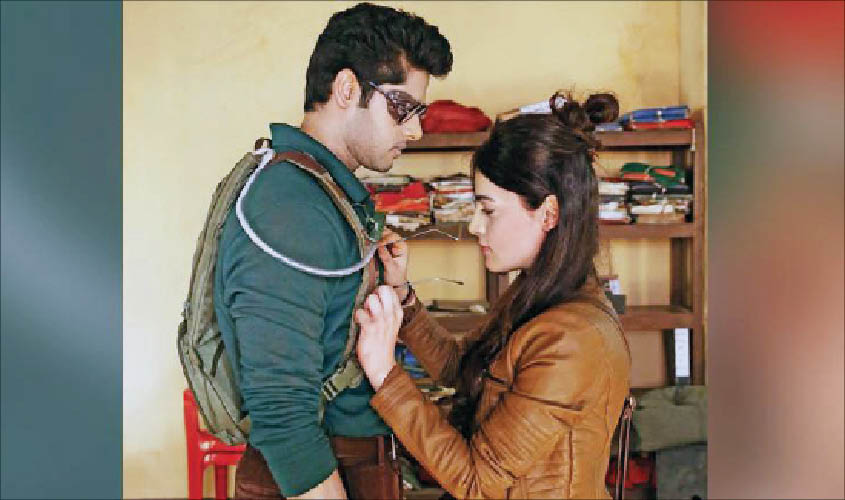During an early scene in Mard Ko Dard Nahi Hota a man tells his impressionable young grandson, Surya, about his adventurous youth. Among other things, how he traveled from India to Japan to Germany in search of Subhas Chandra Bose with the hope of joining the Indian National Army. He encourages him to watch movies so that one day he can himself become like one of those larger-than-life heroes. But the man’s grandson isn’t a normal child. He suffers from a rare condition called Congenital Insensitivity to Pain. In other words, he can’t feel pain. According to the doctor, it has no cure. “It is a miracle that he is even alive,” he declares.
Having lost his mother at a very young age, Surya is raised by his father and maternal grandfather. But since the father is almost always busy in the worldly affairs it’s the grandfather who takes it upon himself to raise the child. “He needs care,” he announces. And the best way known to him is through movies. Growing under the influence of the martial arts movies his grandfather regularly makes him watch, Surya starts dreaming of becoming a karate master one day. Whatever he sees in the movies he starts practicing it, mastering one move after another, until one day he is finally ready to take on the real-life villains.
Mard Ko Dard Nahi Hota in many ways is writer-director Vasan Bala’s love letter to the martial arts films of ’70s-’90s, for Bala grew up watching these films on VHS tapes. The influence of Bruce Lee and Jackie Chan on Mard Ko Dard Nahi Hota is unmissable. What make it more obvious are the constant references to these masters. While trying to teach Surya about the importance of always keeping himself hydrated (owing to the condition Surya suffers from), his grandfather likens Surya’s water-belt-back to Bruce Lee’s nunchaku and Drunken Master’s wine. Of course, there are truckloads of other influences as well. In fact, the film oozes with a kind of cinephilia that one often gets to see in the films of Quentin Tarantino.
It wouldn’t be wrong to describe Mard Ko Dard Nahi Hota as an arthouse film which aims to encroach upon the commercial space through a rather tacky narrative that rapidly keeps switching from one tone to another. Alas, the tonal fluctuations are far too many and often a bit distracting and confusing as well! Another area where the film suffers is its pacing. Some of the fight scenes are too long and purposeless. A more committed editor could have easily shaved off at least 30-40 minutes without affecting the storyline at all. Had Bala and team managed to iron out these flaws we would have certainly had a far more concrete film in our hands. But, in its present form, the film leaves a lot to be desired.

